The National Battle of the Bands Is a Celebration of Black College Life
Adraint Bereal, a rising photographer and multi-disciplinary artist and writer, photographed the National Battle of the Bands in his home state of Texas for VICE. He’s worked extensively documenting Black collegiate life in Texas, in particular in his large-scale crowdfunded project, The Black Yearbook. In this photo essay, he shares his thoughts on HBCU band culture and images from one of the biggest HBCU events of the year.
It’s now three times that I’ve heard “Industry Baby'' by Lil Nas X performed during a stand battle at a Battle of the Bands. His global domination has reached the fields of HBCUs, and the crowd goes wild every time. As soon as I heard those distinctive opening notes played on horns and drums while photographing a battle on a warm Texas night in Houston’s NRG Stadium, my phone lit up with texts from two of my best friends who were also there. "MONTERO WOULD BE SO PROUD,” one read. Being in the audience is one thing, but experiencing the energy that these students had as they hyped one another up is a special feeling. At some point, I was so entranced by the spectacle, the sounds, the culture being fully celebrated that I almost passed out from locking my knees. But I didn't want to lose a single second of the show.
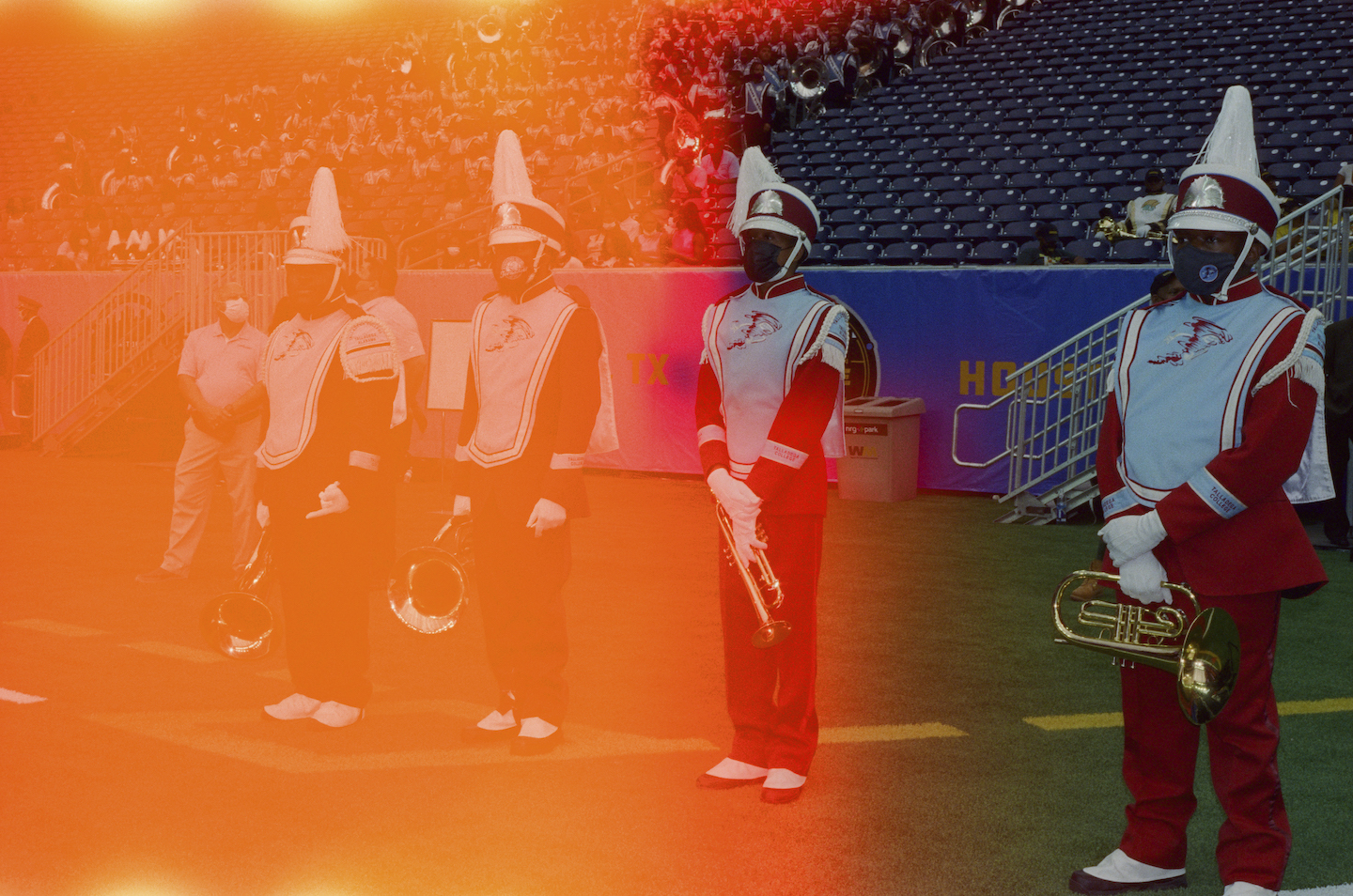
Right about now, HBCUs across the country should be in full Homecoming swing. But the pandemic forced the cancelation of festivities last year, and this year is no different. However, the National Battle of the Bands (NBOB) did make a big return, though not everything looked the same as usual. “We took a lot of precautions to make sure everyone was safe and vaccinated in order to make this happen, in order for us to get back together in fellowship,” said Derek Webber, founder of the NBOB.
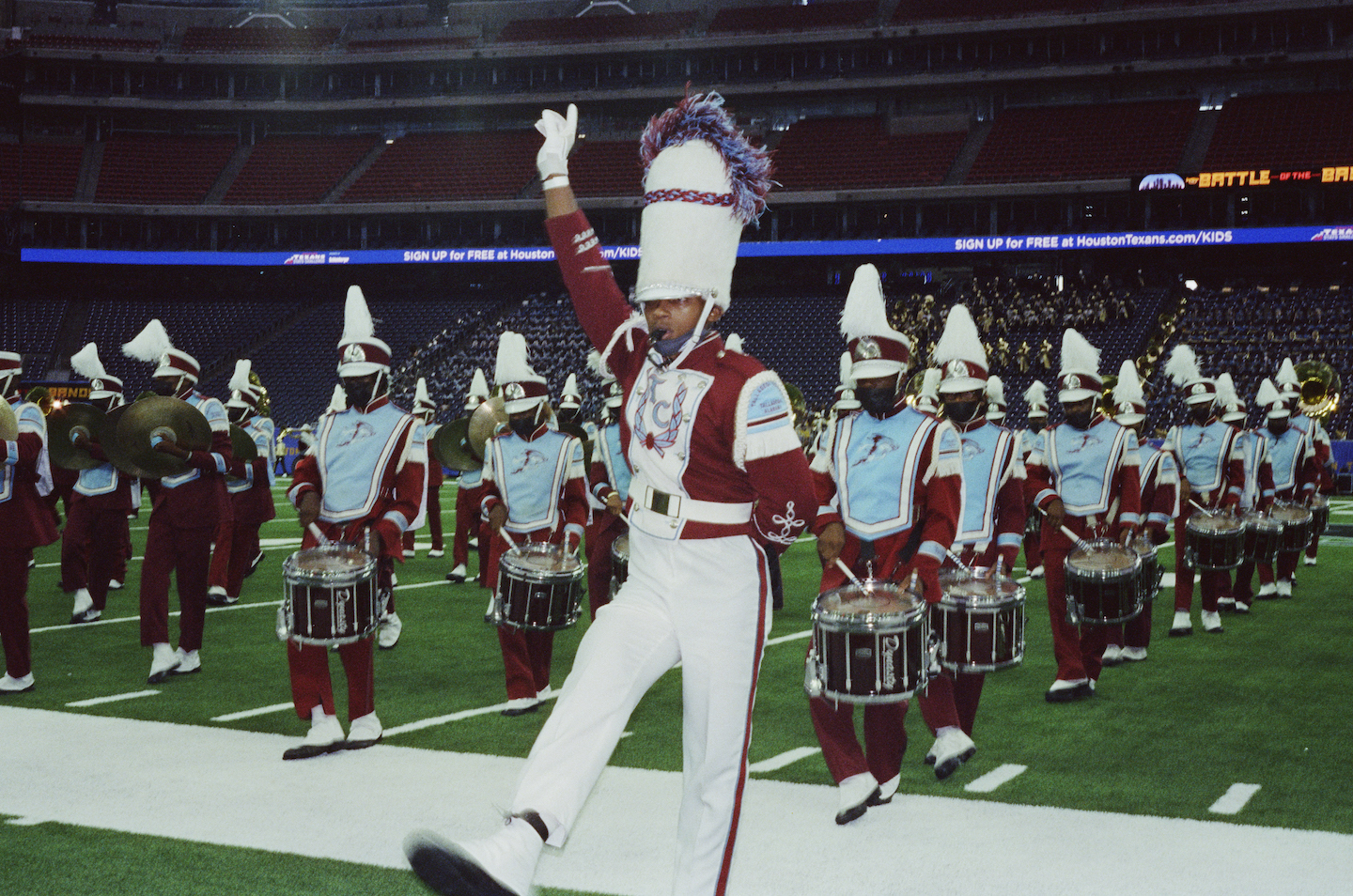
The event is one of America’s most significant cultural practices for HBCU bands, with a style of performance that dates back to the 1940s, originating with military bands and Black minstrel troupes. Each year, students gather from all over to share pop-inspired performances, complete with stunts and theatrics that make it one of the most jaw-dropping and exciting events of the year. This long-standing tradition, in which bands battle against their cross-town rivals, surrounded by old friends, college alumni, the most recognizable Greek letters from Black fraternities/sororities, and family, is a huge part of Black and American culture. No one is crowned the winner; everyone is there to share their craft and earn scholarships for their band. The NBOB awards scholarships, provided by various corporations, to every participating band as well as high school bands from the area. This year, $225,000 was given. “That's what it's really all about,” said Webber.
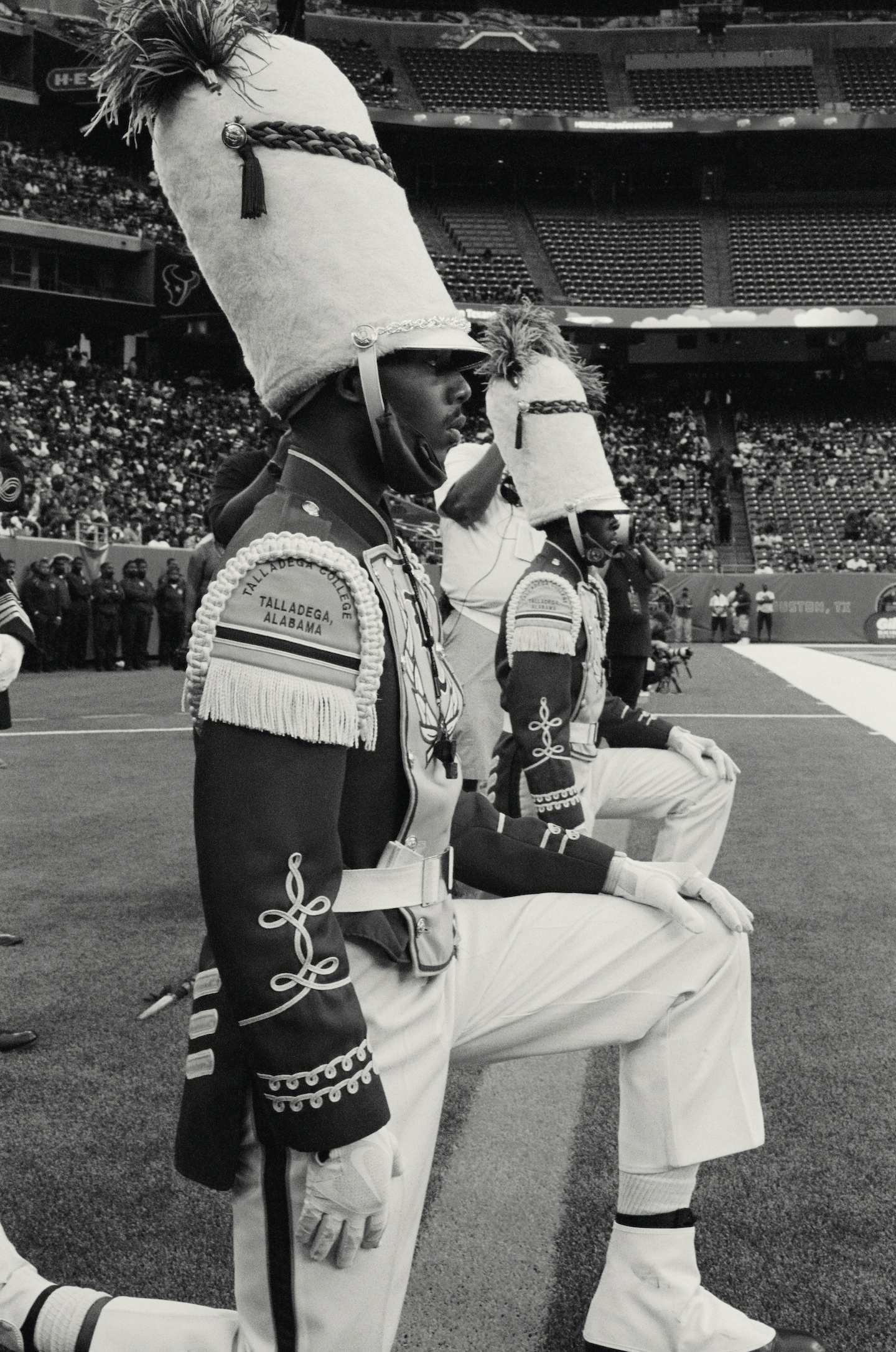
Every band on this night at the Houston Toyota Center had to take at least a year off due to the pandemic, but from up close you wouldn’t know all that time passed without performing. When speaking with Torrey Purvey II, head drum major of the Langston University Marching Pride, he told me, "It's been a while since Langston has been in a battle like this. Since I've been there, we've been pretty small. This is our first big battle. It feels good to be out here, to be seen."
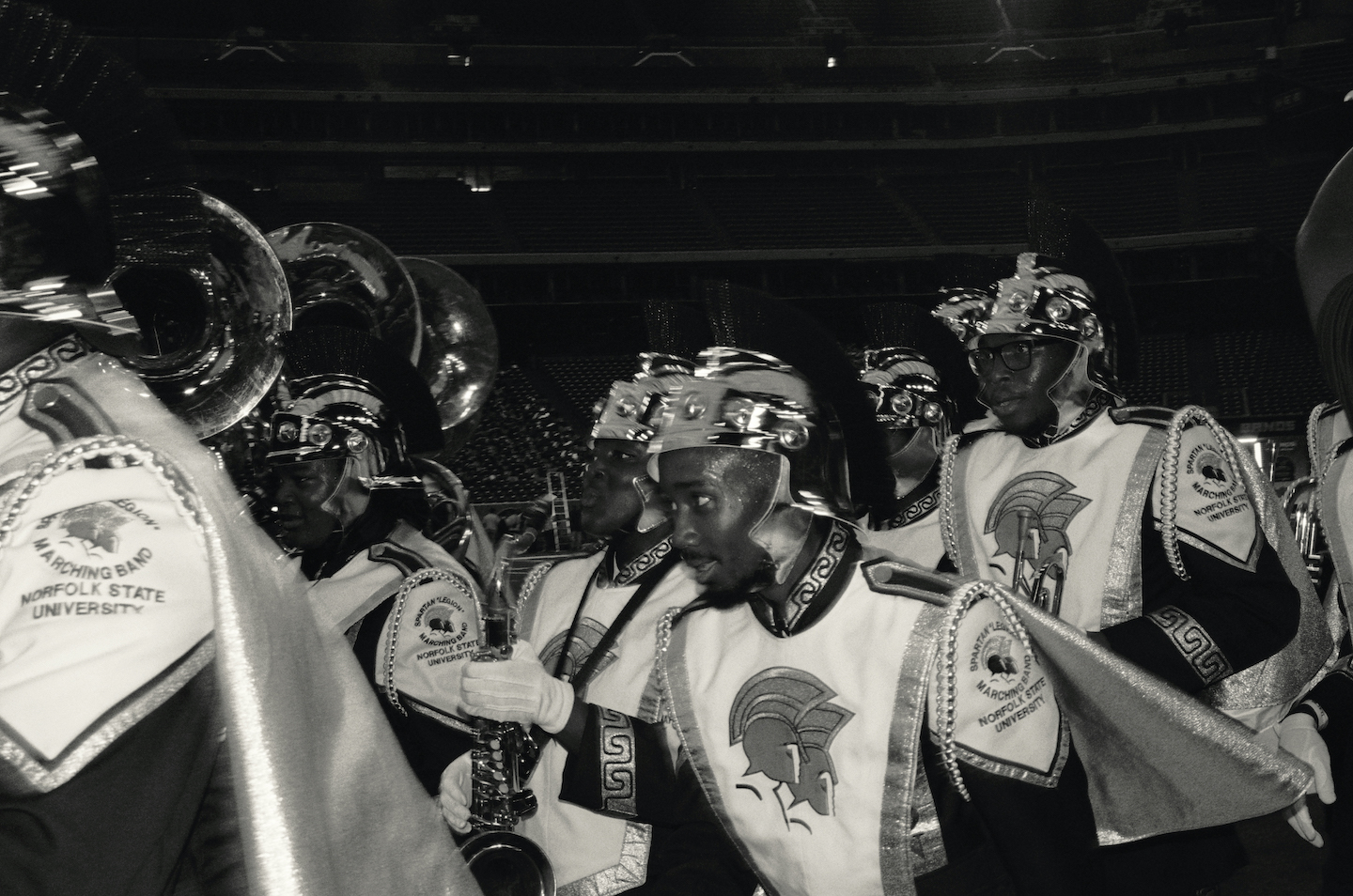
This style of performance by HBCU bands has become so popularized, bands from white institutions and even pop stars have appropriated the tradition, whitewashing its cultural context and significance. After all, what we perceive to be American tradition is quite often Black tradition in a red, white, and blue cape.
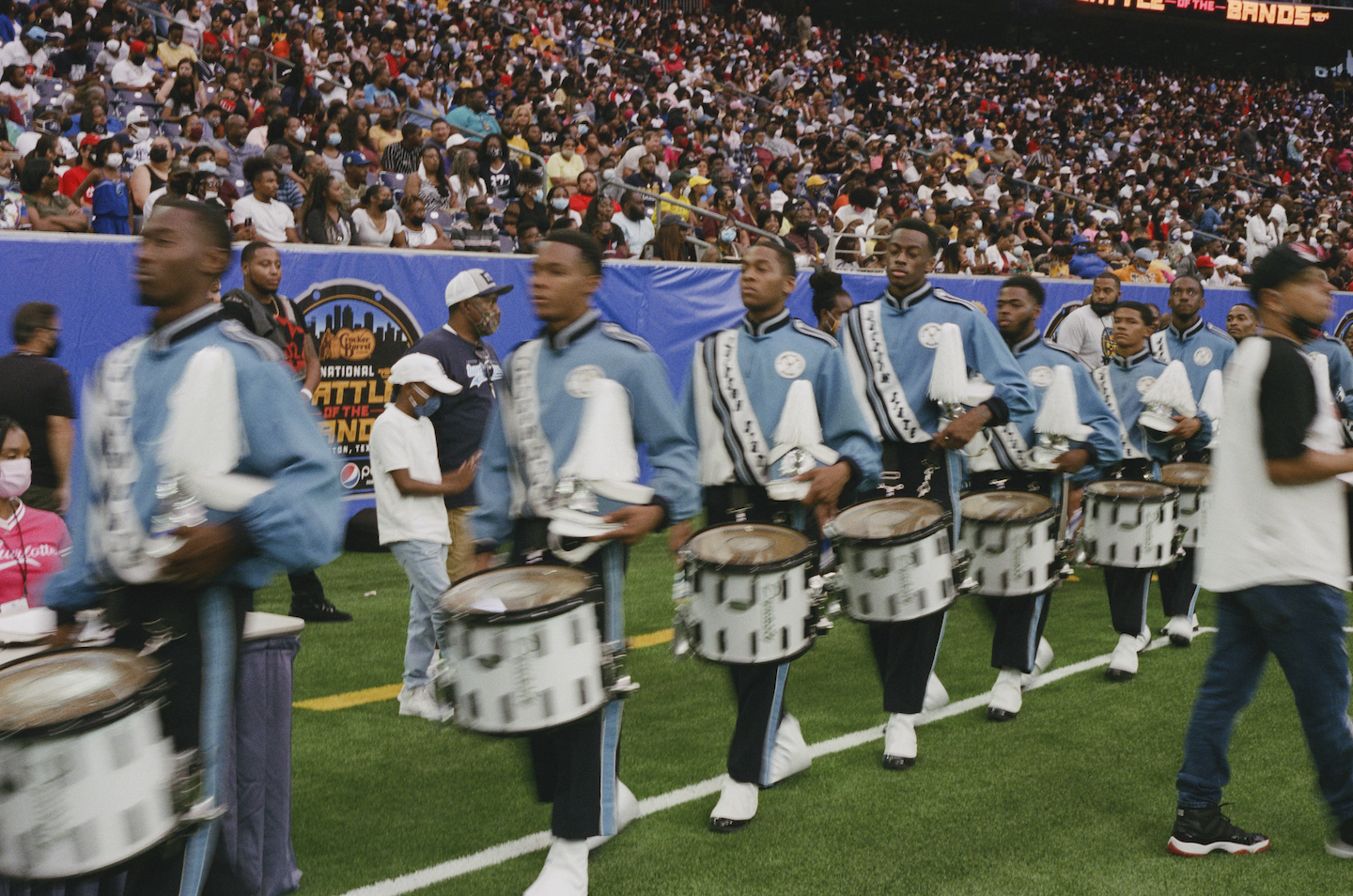
Over time, the HBCU band sound and aesthetic became much more recognizable across the globe. We saw it on full celebratory display at Beychella and in Lizzo's “Good As Hell” music video. On Inauguration Day, as Kamala Harris was walking the parade route to be sworn in as Vice President, she was accompanied by the marching band from Howard, her alma mater. I was in diapers when Drumline was released, but years later, while watching it with my cousins on BET in our grandparent's living room, I felt a surge of excitement. That movie introduced so many people to the marching band tradition, but also upended the idea that being in band is geeky, or that a band could play pop music in a way that vibrates on another level. Every Black boy in the South playing drums in their church band was imitating the iconic solo performance by Nick Cannon down to his intense grimace. The movie not only inspired in me a sense of confidence, but created a reference point for what it means to be able to come together with family for these traditions. This confidence was affirming for me, a Black boy in the South, trying to understand the different ways I could show up in the world, whether it be through my art or in the small moments and gestures that punctuate daily life.
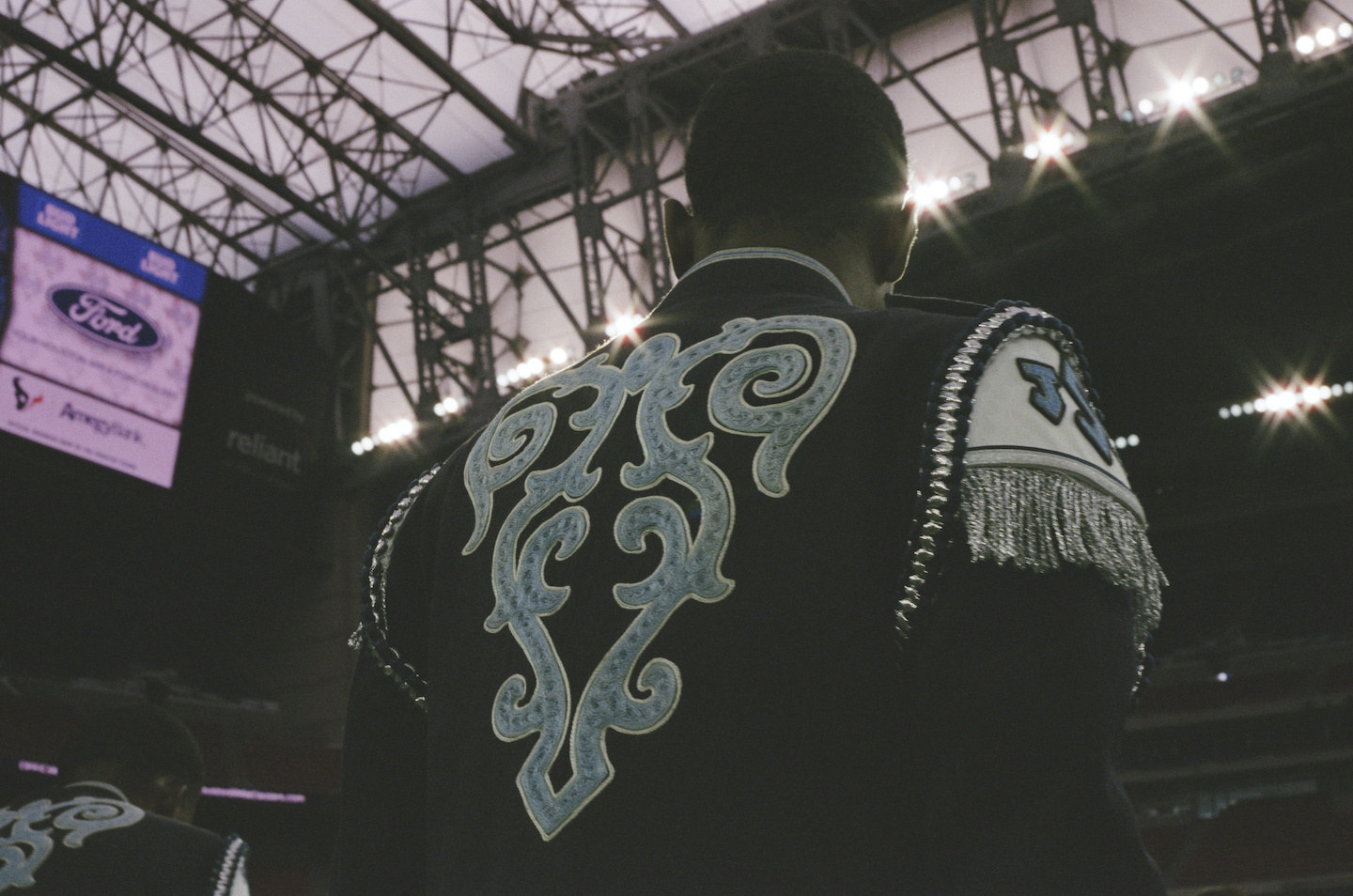
Being in the band is a sport, and it takes an equal amount of commitment and dedication to perform at these students’ level. Many of them compose the music, lead their sections, and make selections for future performances. These students have a huge sense of self-motivation that propels them into the next performance. Drum majors are the captains of this sport, and they bear an even bigger responsibility. “It is a big responsibility, but it's no pressure for me,” Jonathan Lee, head drum major of Norfolk State University, told me. “We do whatever it takes to get us to where we're trying to go.”
These positions are typically given to cisgender men, but the tides are beginning to turn at colleges like Grambling State University, that has just welcomed its second female drum major, Candace Hawthorne, in the school’s 120-year-history.
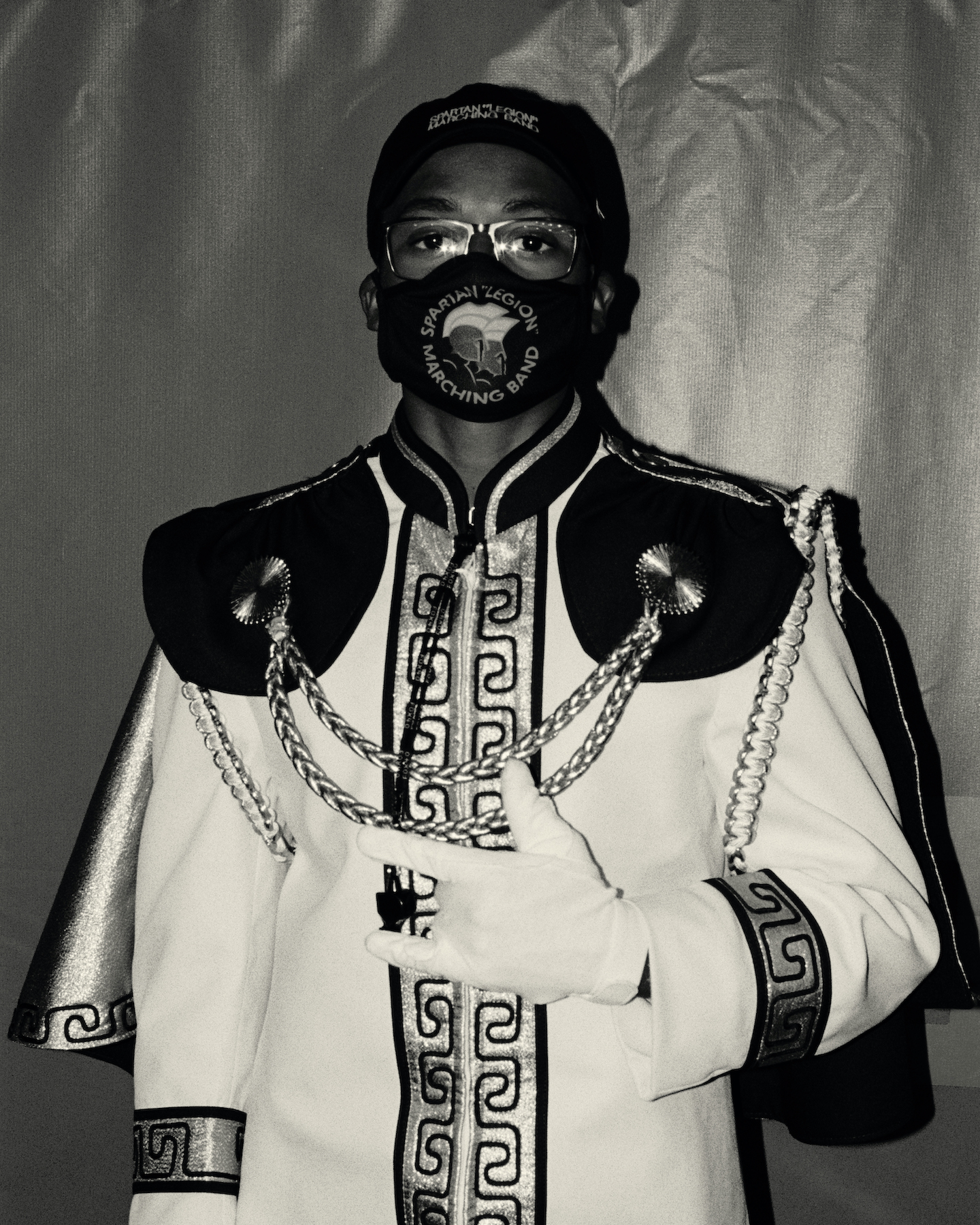
These bands and their showmanship have left an indelible mark on our culture, and we owe a great debt of gratitude to them for their originality, creativity, and the values they uphold: Dedication, camaraderie, and persistence. Their love for performing is endless, and has been a facilitator for not only my own personal joy, but an incalculable amount of others all over the world.
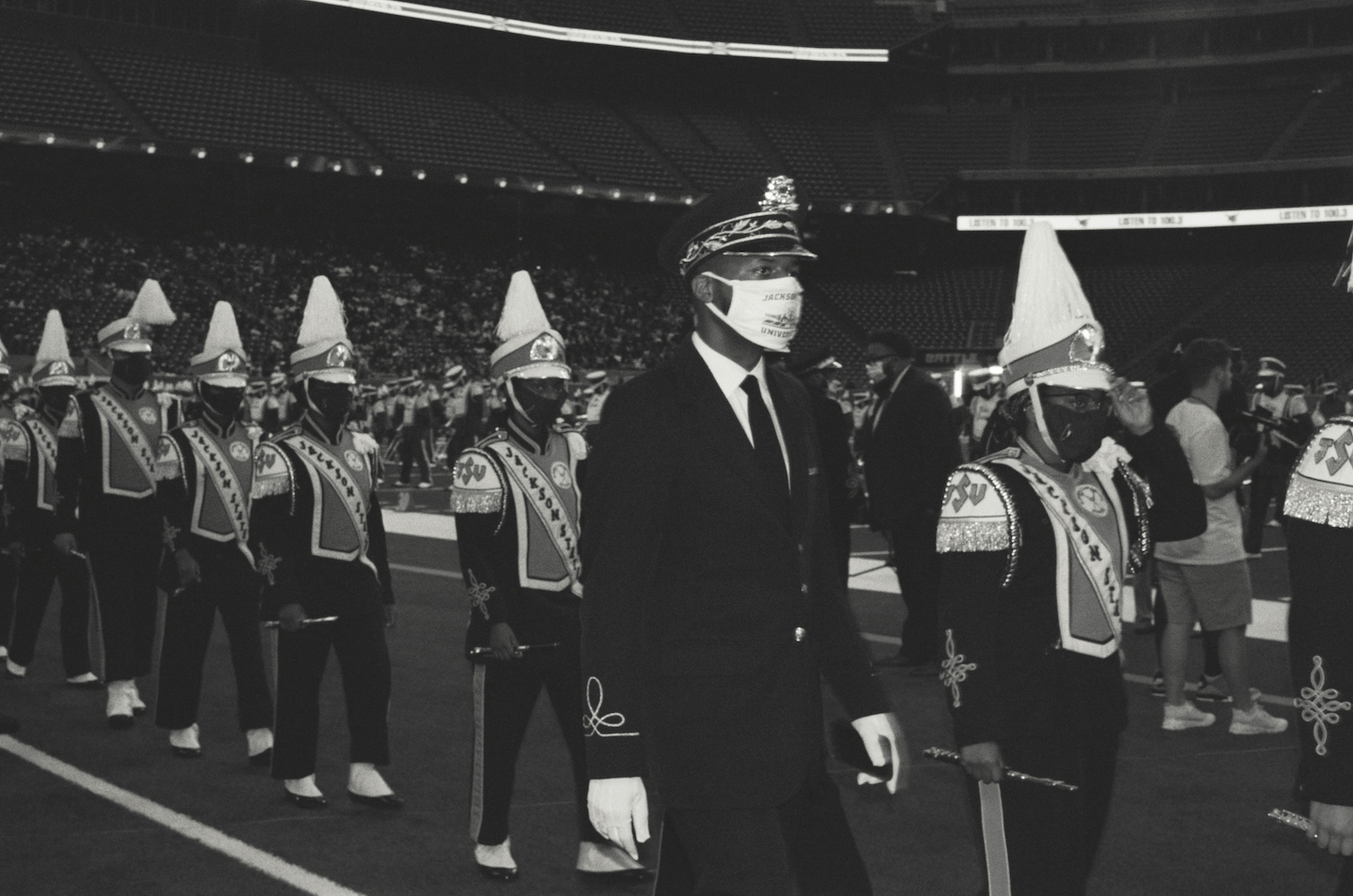
Watching a handful of bands in the deep south of Texas perform “Industry Baby” by Lil Nas X, an openly gay Black man and the biggest pop star of the moment, was a sign of change. Music not only facilitates joy, but creates safe spaces for people to feel welcome and accepted. The contribution of these students lasts more than just one night, and is cemented in history for everyone to see and learn from them.
#DmtDailyDMT.NEWS
via https://www.DMT.NEWS
Adraint Bereal, Khareem Sudlow
